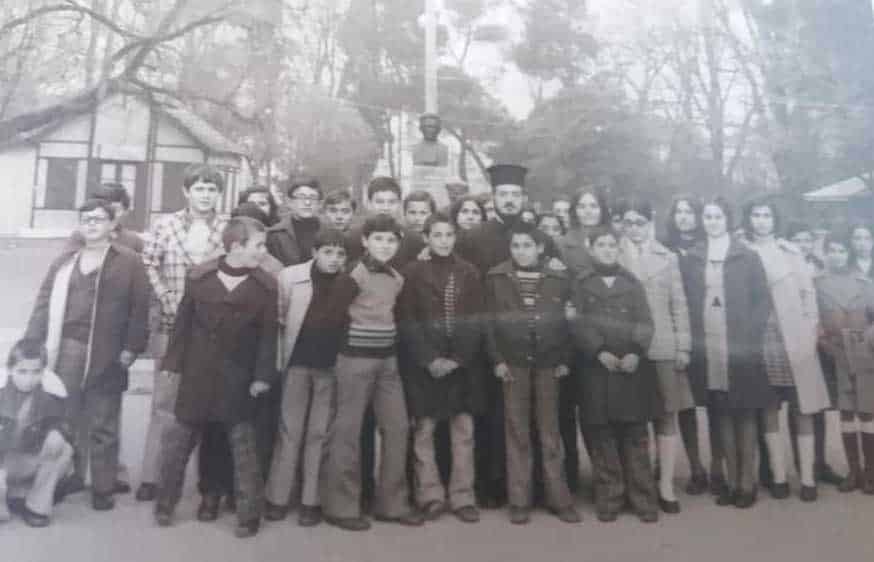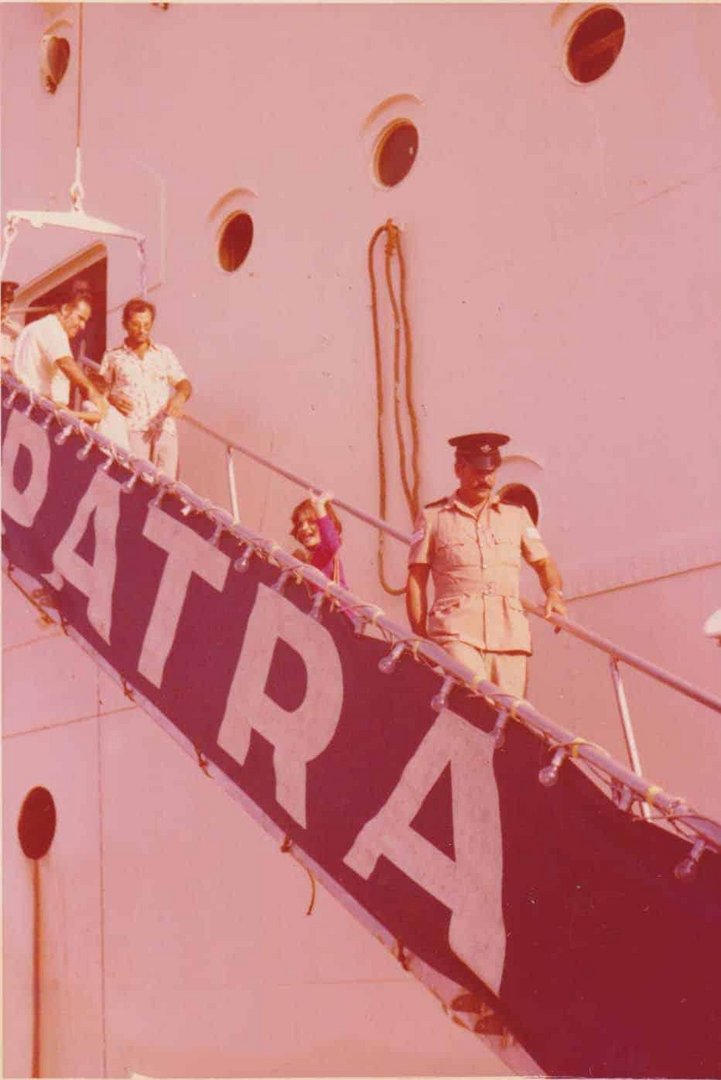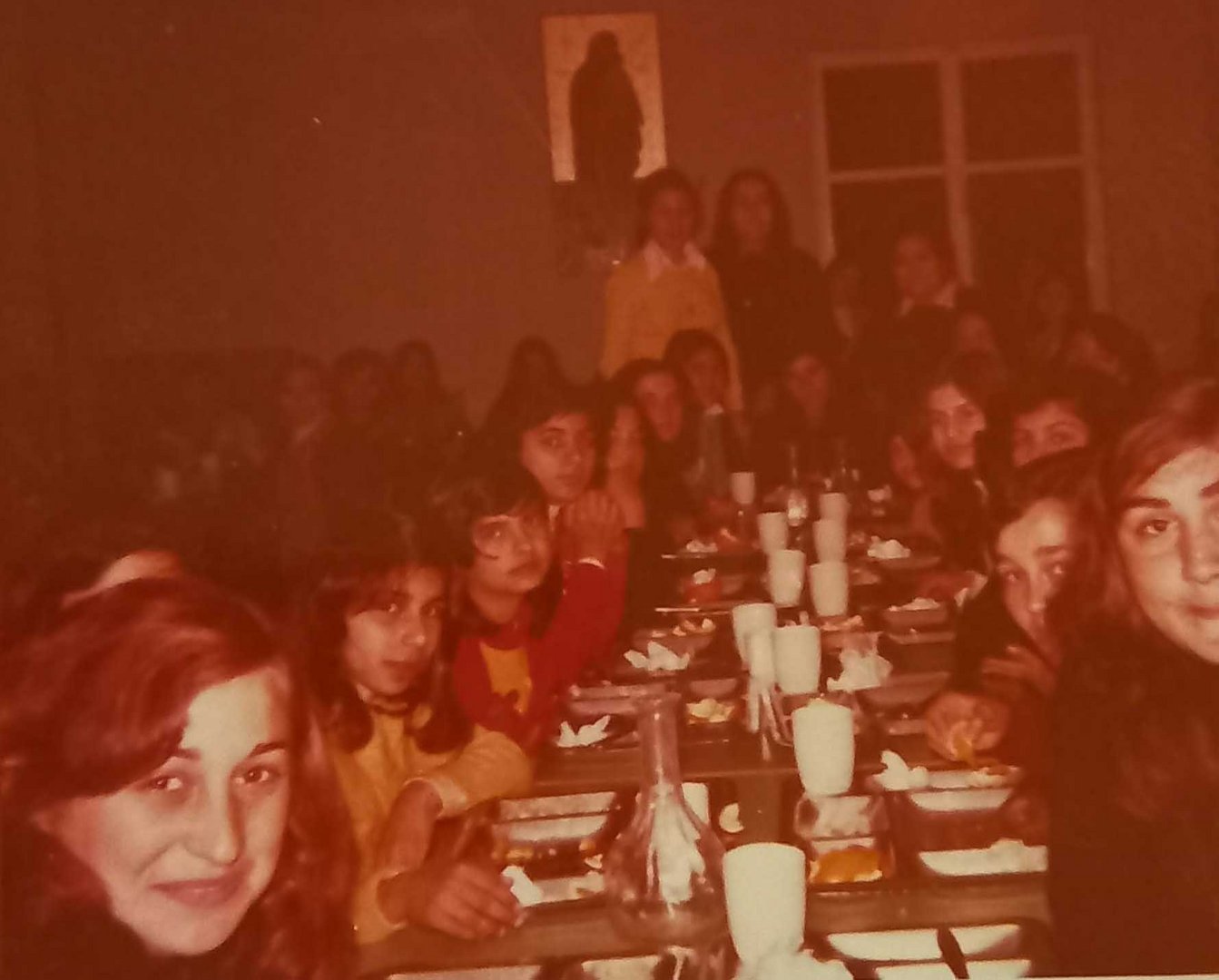The little-known story of the thousands of children who were taken for safety to Greece in the aftermath of the Turkish invasion
By Nikolaos Prakas
Thousands of Greek Cypriot children boarded boats starting in September 1974 following the Turkish invasion to stay in Greece, some as orphans, some with missing relatives, and some because their scared parents sent them to escape further outbreaks of violence.
This story, which is being shared with students across Cyprus this year as part of school functions for national holidays, has remained one that is little known to the public.
Organised as a group on social media, called ‘Children that were hosted in Greece in 1974’, pictures show children in mess halls, out on trips and even boarding the ships.
Speaking at a school function on Friday, one of the children and the group’s vice-president Michalis Michail explained how he was sent on the first boat ‘Patra’ in September 1974, aged nine, with his brother.
Michail remembers boarding the boat with hundreds of other children and only one representative from the ministry of education. The evacuations, which were carried out over a period of many months, affected thousands of children.
Although more organised than present day refugees desperately fleeing war-torn countries, the children, under the initiative of the Pyrgos Ilias bishopric in Peloponnese, Greece were taken by boat from the port of Limassol to Piraeus in Athens, where they then boarded buses for Pyrgos.
Michail brings alive the story of a nine-year-old boy, whose parents told him and his brother that they would go to Greece to “at least ensure that the children were safe”.
Michail says he remembers getting on the boat with hundreds of others, “some with just the clothes on their backs, others in swimsuits, and some with a small bag with just a spare change of clothes, but all refugees”.
On their journey to Greece, somewhere near the island of Rhodes, he remembers the crew telling all the children to get up on the deck, because there were Turkish aircraft flying over them. The crew had the children come out to show the pilots that the boat was transporting minors. Eventually, the boat was allowed to continue to Athens.
Petros Mantis, who was 10 at the time and from the village of Kythrea, also remembers his time in Greece, also being sent by his parents for safety.
He remembers going to Pyrgos Ilias but spending six months crying almost every day to go back to his family.
Something both remembered from Pyrgos was the deep trauma that the invasion left on them. Mantis described that next to the orphanage in the church grounds where they stayed in Greece was a military base out which planes flew.
For the first days, whenever the planes flew all the children would rush to hide and take shelter, because they thought the Turkish army was coming to get them.
Mantis talked about how he remembers leaving Kythrea, and saw planes and shells flying overhead, while he distinctly remembers one car was hit by a shell.
He carried this experience and trauma in Greece. “I saw planes in Greece fly overhead, and I ran away,” Mantis said.
He spent the rest of the day curled up in a little corner, while the people running the orphanage searched for him.
However, many children did not stay only in the orphanages run by the church.
Michail said that after a few days in the orphanage, “the doors opened one day, and people started to come and take children.”
He added it was almost like a “bazaar” with people saying they wanted this child or that. He recalled many felt this way, because they still hadn’t realised why they had been sent to Greece.
Michail said that he and his brother were taken in by a family in Pyrgos, Ilias, with whom they still retain contact today, “because they did not separate us from their own children”. The family had one child, Giorgos, and Michail said that if the parents got Giorgos something, they got the same for him and his brother.
Michail fondly calls the couple, now deceased, “auntie and uncle.”
Mantis was also taken by a family, but only spent the weekends with them, as he wanted to stay at the church premises.
He remembers going to visit this family in 2018, and how the clothes and room that they had prepared for him were laid out for him as a gesture of remembrance of the time he spent with them.
Michail also recalled, when the group organised a trip back to Greece in 2018, that some of the women saw their old teacher who remembered all of them, and waited to hug them as they got off the bus.
These stories were shared at length with the students of Kykkos B lyceum on Friday. Speaking to the Cyprus Mail after the ceremony, most of the students shared how moving they found the story, as it was something they had never heard before.
One girl, a student at the school, when asked how she would feel if this happened to her at age 10 like Michail and Mantis, said: “If I lived that, I would and couldn’t have the strength to leave my family.”
Since the war and since organising as a group to bring this story to light, Michail, Mantis and others from the group have shared their stories not only at schools, but on social media, and with traditional media.
Last June, the group in a ceremony attended by Education Minister Athena Michaelidou and Greek President Katerina Sakellaropoulou laid a commemorative plaque at the port in Piraeus, where the children first arrived.
Their next stop, Michail said, is to lay another plaque at Pyrgos Ilias in November, where so many of them were hosted at a tender age.
All the members have thanked Greece, the families and the church for their time there, and carry fond memories, despite having lived through the hardships of the war.



